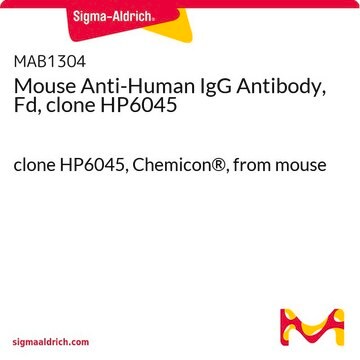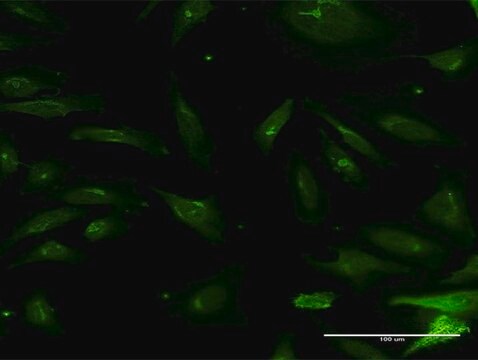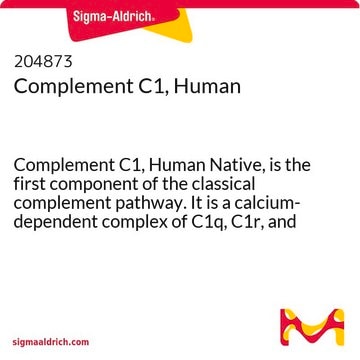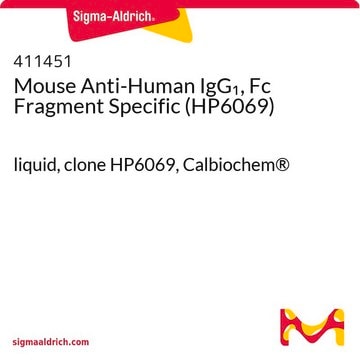WH0023057M1
Monoclonal Anti-NMNAT2 antibody produced in mouse
clone 2E4, purified immunoglobulin, buffered aqueous solution
Synonym(s):
Nmnat2 Antibody, Nmnat2 Antibody - Monoclonal Anti-NMNAT2 antibody produced in mouse, Anti-C1orf15, Anti-KIAA0479, Anti-MGC2756, Anti-PNAT2, Anti-nicotinamide nucleotide adenylyltransferase 2
About This Item
Recommended Products
biological source
mouse
Quality Level
conjugate
unconjugated
antibody form
purified immunoglobulin
antibody product type
primary antibodies
clone
2E4, monoclonal
form
buffered aqueous solution
species reactivity
human
technique(s)
indirect ELISA: suitable
western blot: 1-5 μg/mL
isotype
IgG1κ
GenBank accession no.
UniProt accession no.
shipped in
dry ice
storage temp.
−20°C
target post-translational modification
unmodified
Gene Information
human ... NMNAT2(23057)
General description
Immunogen
Sequence
CIPGLWNEADMEVIVGDFGIVVVPRDAADTDRIMNHSSILRKYKNNIMVVKDDINHPMSVVSSTKSRLALQHGDGHVVDYLSQPVIDYILKSQLYINASG
Application
Biochem/physiol Actions
Physical form
Legal Information
Disclaimer
Not finding the right product?
Try our Product Selector Tool.
Storage Class Code
10 - Combustible liquids
Flash Point(F)
Not applicable
Flash Point(C)
Not applicable
Personal Protective Equipment
Certificates of Analysis (COA)
Search for Certificates of Analysis (COA) by entering the products Lot/Batch Number. Lot and Batch Numbers can be found on a product’s label following the words ‘Lot’ or ‘Batch’.
Already Own This Product?
Find documentation for the products that you have recently purchased in the Document Library.
Our team of scientists has experience in all areas of research including Life Science, Material Science, Chemical Synthesis, Chromatography, Analytical and many others.
Contact Technical Service








